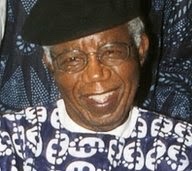(As compiled by Charles Novia)
I did promise that my next post will be a review of the
Best Actors in Nollywood in 2014. Last year on charlesnoviadaily.com, OC Ukeje
won for 2013. I am sure many read my list for the female counterparts for
2014 and whilst the criteria for judging the actors in 2014 won’t be any
different, I have gone the extra mile to add snippets of what I believe were
the extra efforts these actors on the list made to merit the mention they have
received.
As usual, charlesnoviadaily.com sampled opinions of
tested and trusted film professionals and critics who put heads together with
me to scrutinize the art of many shortlisted names after which I had to arrive
at the five names based on my overall veto. It is important to note too that
there were no dissenting opinions amongst my team of experts about the Number
One choice.
For the crowd which believes that an actor’s popularity
and fan base automatically means that such an actor must be on lists such as
this, I say to you; get your heads out of your closets.
On this platform, all levels of professionalism are used as universal
templates. I do not give a damn about the number of years an actor or
actress has spent in the industry when I draw up such lists. I am more
concerned with areas of the actors body of work for the year and how impressive
such was when placed under an artistic microscope.

































